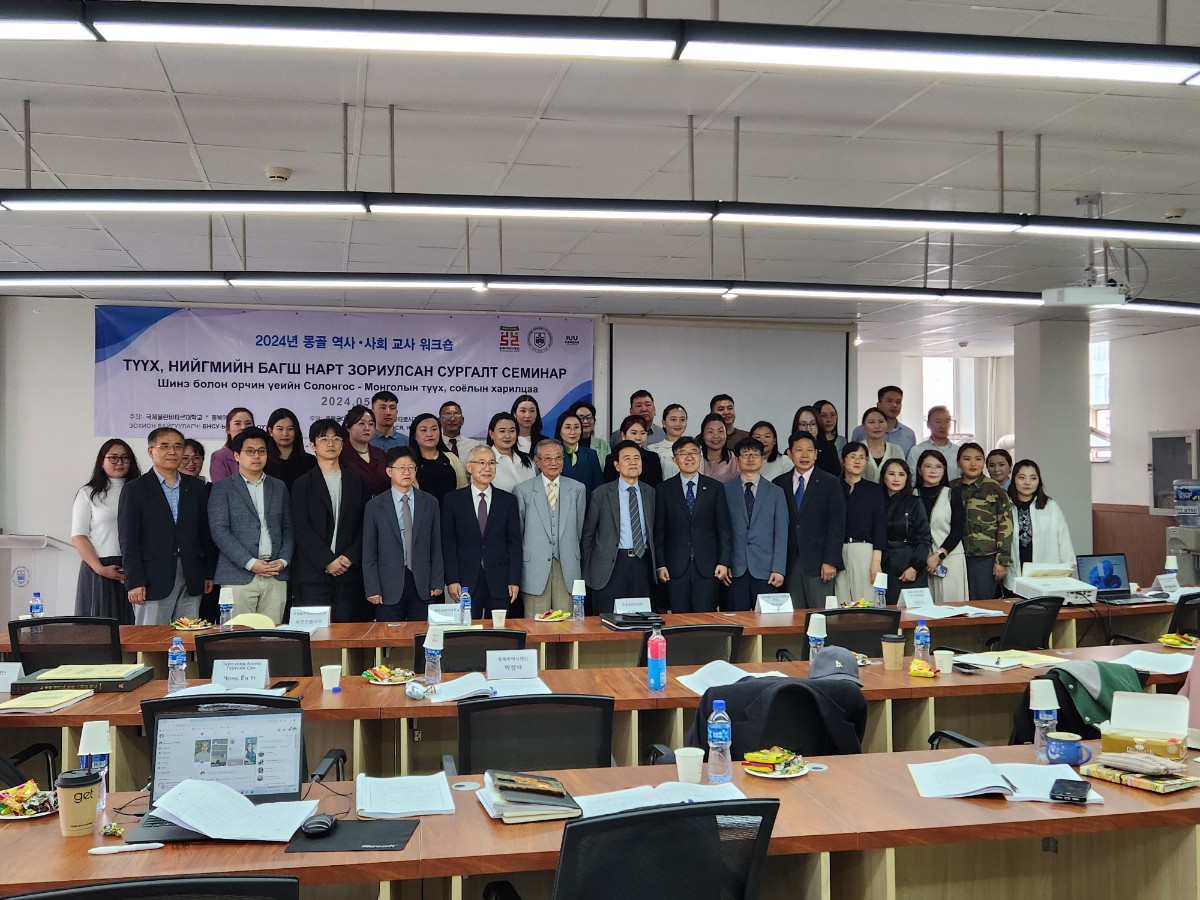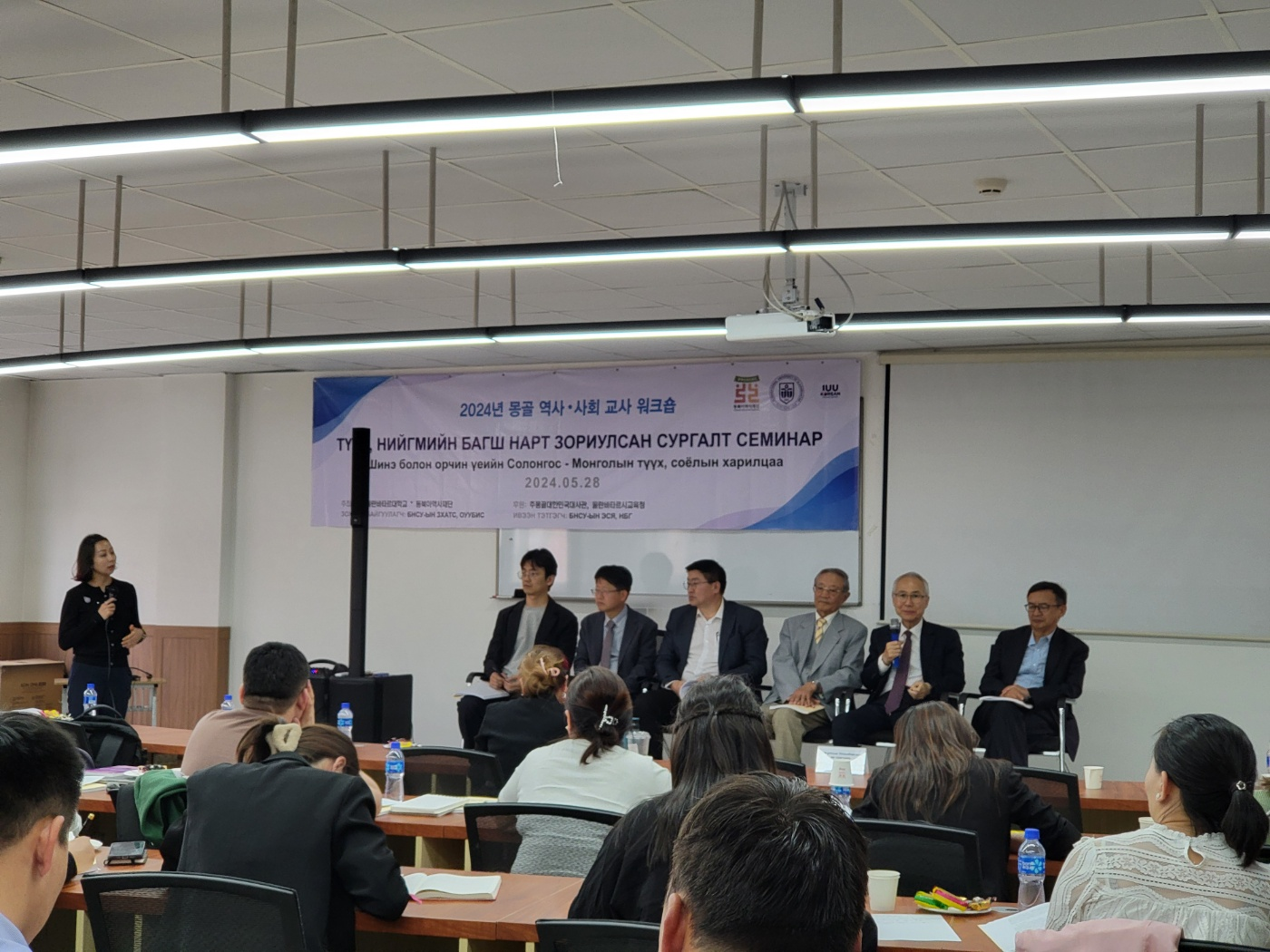Title The 2024 Mongolian History and Society Teacher Workshop is being held
- Date2024.06.24
- Hit417

The Northeast Asian History Foundation (hereinafter referred to as the Foundation) held the "2024 Mongolian History Teacher Korean History Workshop" at the International University of Ulaanbaatar in Mongolia on May 28th. Over the past decade, the Mongolian History Teacher Korean History Workshop project has aimed to enhance the knowledge of Korean history and Korea-Mongolia relations among Mongolian history and social studies teachers. It has also contributed to the mutual understanding and friendship between Korea and Mongolia by producing and distributing teaching materials related to Korean history.
This year's workshop was themed "Modern and Contemporary History and Cultural Exchange of Korea and Mongolia." Six history and diplomatic experts from Korea and Mongolia participated as lecturers, and 35 current middle and high school teachers from Ulaanbaatar attended as participants.
The first lecture was given by Jeon Young-wook, a research fellow at the Foundation, who provided a concise overview of Korea's modern and contemporary history from the mid-19th century to the present, focusing on key terms such as opening of ports, colonization, nation-building, division, economic development, and democratization. The second lecture was given by Erdenbat, a research fellow at the Mongolian Academy of Sciences, who divided Mongolian modern and contemporary history into five periods and explained each in detail.

Baatar Tuur, a professor at the National University of Mongolia, led the third lecture, which focused on the perceptions of Koreans by Mongolians in the 20th century. He highlighted how Mongolian newspapers and books from the 1910s to the 1930s exposed Japanese imperialist oppression and atrocities against Koreans and introduced the Korean anti-Japanese struggle. In the fourth lecture, Professor Lee Pyong-rae from Hankuk University of Foreign Studies examined the perceptions of Mongolia by early 20th-century Korean intellectuals. Articles related to Mongolia in domestic and international media during the 1920s and 1930s emphasized the achievements of the Mongol Empire and Genghis Khan. The fifth lecture, given by Park Jang-bae, a research fellow at the Foundation, discussed the human exchanges between Korea and Mongolia in the early 20th century, focusing on the independence activist Lee Tae-joon. In the final lecture, Urjin Hundep, a former Mongolian ambassador to South Korea, reflected on the Korea-Mongolia relationship since the establishment of diplomatic ties in 1990 and offered prospects for the future.
Following the lectures, a lively Q&A session ensued. There were high-level questions and discussions, including inquiries about the "Colonial Exploitation Theory" and the "Colonial Modernization Theory." Through this, the direct and indirect achievements of the Mongolian History Teacher Workshop project, which has been ongoing for the past decade, were evident. The Mongolian History Teacher Korean History Workshop and the participating Mongolian history and social studies teachers will serve as a solid foundation for the future development of Korea-Mongolia relations.
